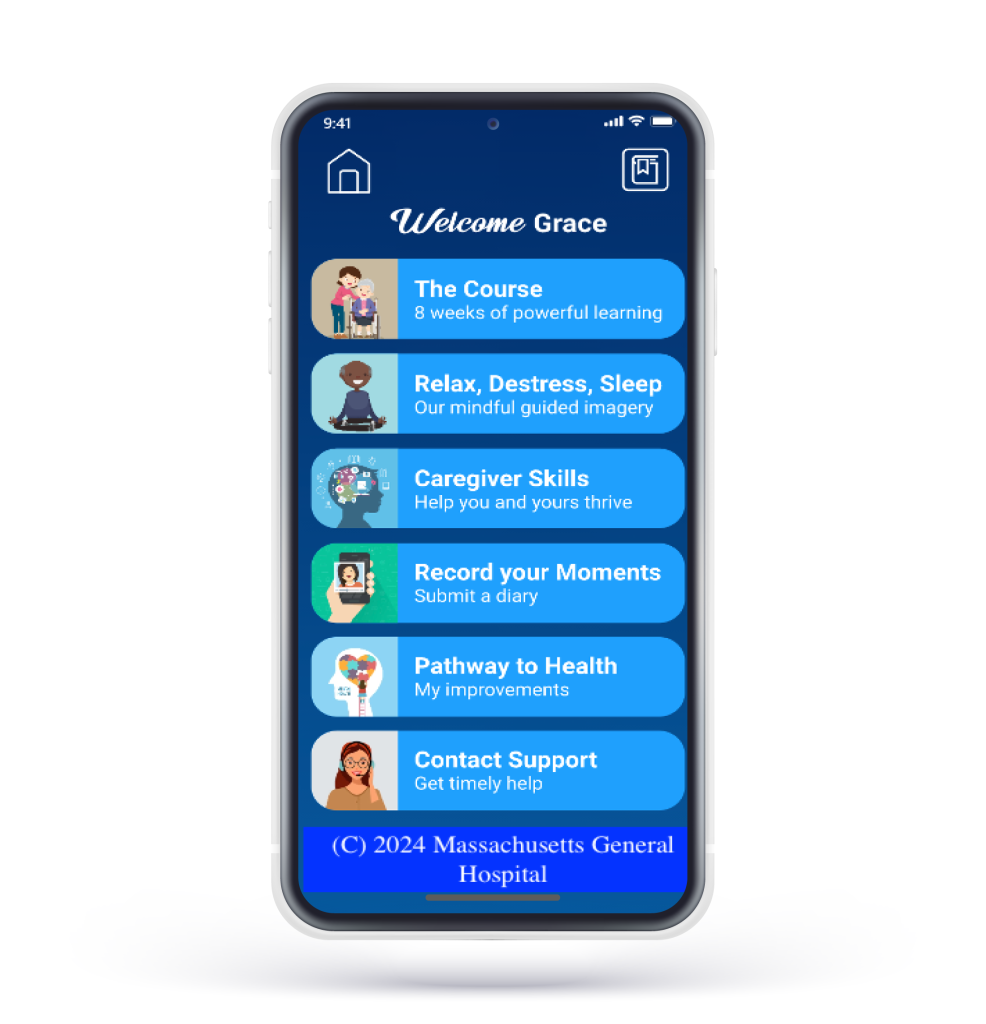Investigators:
Felipe A. Jain, MD, Massachusetts General Hospital
Finale Doshi-Velez, PhD, Harvard University
MassAITC Cohort: Year 4 (AD/ADRD)

Initial Proposal Abstract: Millions of family caregivers of people living with Alzheimer’s Disease and AD-Related Disorders (AD/ADRD) experience stress, depression, and suicidal ideation. Due to the low effect sizes of most therapies on caregivers’ symptoms, and poor accessibility of in-person programs, there is a critical need to identify new and efficacious mobile treatments. There are no validated caregiver interventions that customize caregiver skills training and stress reduction using just-in-time adaptive intervention (JITAI) principles. JITAIs seek to provide necessary intervention at a time when the participant can optimally advantage themselves of this content to improve or maintain health, and thus provide new avenues for personalizing treatment and optimizing caregiver therapies to improve effect sizes. Artificial intelligence (AI) approaches, including reinforcement learning (RL) and large language models (LLM), may help to guide JITAI implementation over time by adapting the JITAI algorithm on the basis of participant data.
The objectives of this study are to leverage machine learning, RL, and LLM algorithms on smartphone usage, sensor data, self-report needs, and ecological momentary assessment, to deliver a JITAI that improves longitudinal mobile content engagement by family AD/ADRD caregivers. We will utilize an existing platform, the CareDoc App, which contains caregiver skills and relaxation learning modules for caregivers. Our first aim is to develop RL value functions, LLM model, and JITAI-enhanced CareDoc App on the basis of pilot data. We will apply random forest machine learning with explainable AI techniques to identify key features of individual subjects over time that predict higher engagement with specific MIT content modules from 110 caregivers. We will test LLM models to match CS content usage with spontaneous self- reported needs posted in the CareDoc chat and in response to specific prompts to submit caregiver challenges. We expect to identify features that will predict timing and type of content engagement including from passive sensor data and self-report challenges. We will utilize RL to help guide presentation of relaxation exercises.
In Aim 2, we will demonstrate proof of principle that the JITAI algorithm results in increased engagement. A micro-randomized feasibility study of CareDoc MIT-CS will be conducted with 40 family AD/ADRD caregivers (English or Spanish language). Caregivers will be randomized each day to receive content-linked notifications and TODAY menu items based on RL/LLM, versus structured (non-personalized) content and non-customized timing. Expected Outcomes. The JITAI algorithm will result in increased rates of App content engagement, relevance, perceived helpfulness, and timeliness, relative to structured content and consistently scheduled delivery.
